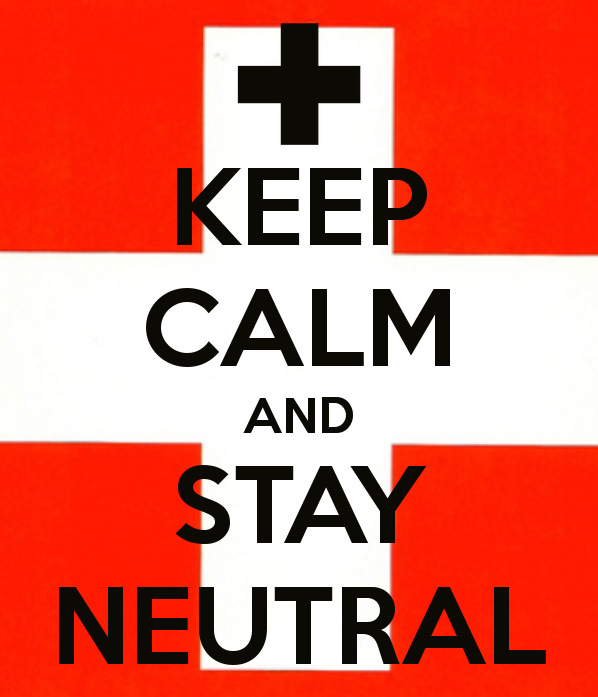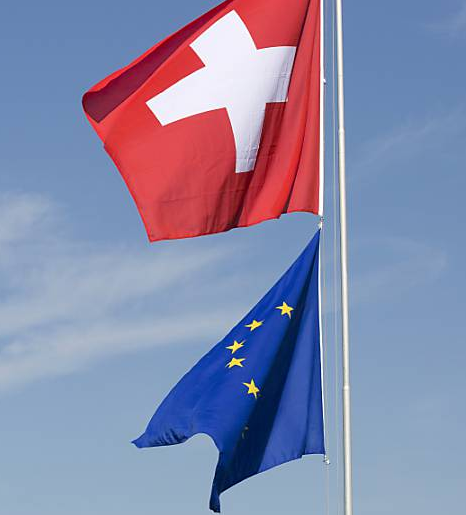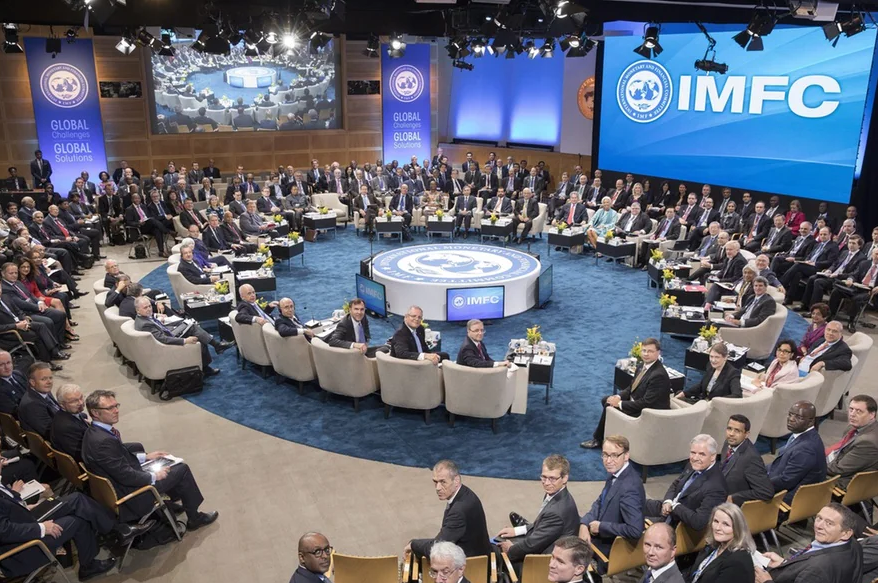Against the backdrop of the war in Ukraine, the Swiss ambassador to NATO, Philippe Brandt, explains the importance of Switzerland’s partnership with the alliance, which he views as perfectly compatible with Swiss neutrality. SWI swissinfo.ch: Has your role as head of the Swiss mission to NATO changed since the outbreak of the war in Ukraine? Philippe Brandt: We are living through a very intense time. Our role as a mission hasn’t fundamentally changed. We are closely following NATO decisions and the alliance’s evaluation of the situation. This crisis shows that NATO is a key player in the field of security policy and good access to our network of contacts is essential. Our partnership with NATO is stable and fruitful. It has led to a number of activities of
Topics:
Swissinfo considers the following as important: 3.) Swissinfo Business and Economy, 3) Swiss Markets and News, Featured, newsletter, Politics
This could be interesting, too:
Investec writes The Swiss houses that must be demolished
Claudio Grass writes The Case Against Fordism
Nachrichten Ticker - www.finanzen.ch writes Die Performance der Kryptowährungen in KW 9: Das hat sich bei Bitcoin, Ether & Co. getan
Nachrichten Ticker - www.finanzen.ch writes Wer verbirgt sich hinter der Ethereum-Technologie?
Against the backdrop of the war in Ukraine, the Swiss ambassador to NATO, Philippe Brandt, explains the importance of Switzerland’s partnership with the alliance, which he views as perfectly compatible with Swiss neutrality.
SWI swissinfo.ch: Has your role as head of the Swiss mission to NATO changed since the outbreak of the war in Ukraine?
Philippe Brandt: We are living through a very intense time. Our role as a mission hasn’t fundamentally changed. We are closely following NATO decisions and the alliance’s evaluation of the situation. This crisis shows that NATO is a key player in the field of security policy and good access to our network of contacts is essential.
Our partnership with NATO is stable and fruitful. It has led to a number of activities of interest to Switzerland, notably in terms of training. Our relationship with the alliance is characterised by considerable trust, built up over 25 years of concrete collaboration. This mutual trust is valuable and very useful.
Switzerland on the margins of NATO
The North Atlantic Treaty Organization was founded during the Cold War in 1949. It now counts 30 member states in the transatlantic region, including former Warsaw Pact countries. Originally a military alliance to counter the Soviet Union, it has, since the fall of the Berlin Wall, promoted security in Europe more broadly by integrating new challenges such as terrorism, cyber warfare, new technologies and the rise of China’s power.
Described as brain-deadExternal link by Emmanuel Macron two years ago, NATO is in the process of redefining itself as a military defence organisation to counter the Russian threat. Switzerland has been a NATO partner since 1996 in the framework of Partnership for Peace. Austria, Finland, Sweden and Ireland are also part of that. In addition, NATO has partnerships with about 20 other countries and organisations. Switzerland is particularly involved in the alliance’s peacekeeping operations in Kosovo and has contributed security expertise for civilian and military defence. Swiss neutrality rules out any participation in combat operations.
End of insertion
SWI: Finland and Sweden, which neighbour Russia and are also NATO partners, are forging closer ties with the organisation, which was originally a military one. Is Switzerland “tempted” to follow suit in order to protect itself, as some Swiss politicians are demanding?
P.B.: Swiss neutrality is one of the foundations of our partnership with NATO. So far, accession is not on the agenda. This state of affairs is perfectly well understood and respected by our partners in the alliance.
Moreover, we maintain very close contacts with European countries that are not NATO members – Finland, Sweden, Austria and Ireland – even if our geostrategic environments and security policies are different. Security policy is determined by the government and parliament and the mission’s mandate originates there.
But the main result of our partnership is that Switzerland’s armed forces have considerably strengthened their capacity to cooperate – what is known, in jargon, as interoperability. This is of course a key benefit to Switzerland’s defence and security capabilities.
SWI: Switzerland has joined European sanctions. Has it set aside its neutrality?
P.B.: Switzerland remains neutral; adopting the EU’s sanctions doesn’t change that at all. It’s not helping either warring party on a military level. In fact, Switzerland’s neutrality policy provides wide room for it to manoeuvre to accommodate extraordinary developments. Russia’s military attack on Ukraine and the serious violations of basic international law are unique in recent European history. Our neutrality is completely compatible with EU sanctions.
SWI: Yet Christoph Blocher, a former government minister and a People’s Party figurehead, believes the sanctions mean that Switzerland has entered the war on the side of NATO and the European Union. Russia has placed Switzerland on a list of “hostile” countries.
P.B.: By adopting EU sanctions, Switzerland is not deviating from its legal obligations as a neutral state. Switzerland has applied the neutrality law in its relations with Russia and Ukraine since Russia’s annexation of Crimea in 2014. This remains the case, even during Russia’s current military attack on Ukraine.
But neutrality doesn’t mean indifference. Neutrality doesn’t prevent Switzerland from condemning violations of international law and taking a stand for democratic values.
SWI: Switzerland has always counted on indirect protection by NATO because it is geographically located in the heart of Europe. But is this also applicable to modern warfare technology, such as cyber attacks, missiles and nuclear arms?
P.B.: The security policy report currently under debate in the Swiss parliament shows clearly that many modern threats don’t stop at national borders. That is precisely why cooperation with other states and organisations like NATO is so important. The argument that we are protected by NATO because of our geography, furthermore, lacks solidarity. Switzerland contributes its share to European security.
SWI: This question may seem a little naive in the current situation, but what can Switzerland do to get back to the basics of its partnership with NATO? Should it offer its know-how in terms of respecting international humanitarian law and the protection of civilians?
P.B.: Respecting international humanitarian law is indeed a priority that we have been promoting actively since the beginning of our partnership. We are taking part in projects on issues such as protecting civilian populations or cyber defence. On top of that, new technologies such as artificial intelligence pose new challenges to international humanitarian law. We exchange information on this subject regularly with NATO and it is certainly in our interest to collaborate.
SWI: Is this a lost cause today in Ukraine?
P.B.: The drama unravelling in Ukraine affects us all. Switzerland has taken a clear stance towards Russia. It has firmly condemned Russia’s military attack on Ukraine and urged Russia to defuse the situation immediately, to stop all fighting and withdraw its troops at once from Ukrainian territory.
SWI: Can concrete action on the ground also be taken?
P.B.: Switzerland is very engaged on a humanitarian level. It is delivering aid consisting of medical supplies and basic emergency goods via Poland to the Ukrainian population. So far, we’ve made four deliveries. Members of the Swiss Humanitarian Aid Unit (SHA), an arm of the Federal Department of Foreign Affairs (FDA), have been dispatched on the ground and are thus ensuring this aid is distributed.
In parallel, a second SHA team has been sent to Moldova. Aid supplies, particularly medicine and tents, will also be sent in response to the needs of Ukrainian refugees. Beyond this direct aid, Switzerland is contributing funds to humanitarian organisations such as the International Committee of the Red Cross (ICRC) and the UN – CHF500,000 ($533,000) and CHF250,000 respectively.
In addition, it has given CHF500,000 to the UN emergency aid fund for Ukraine. All this aid is part of a package of support measures Switzerland has taken which adds up to the sum of about CHF8 million.
Tags: Featured,newsletter,Politics









